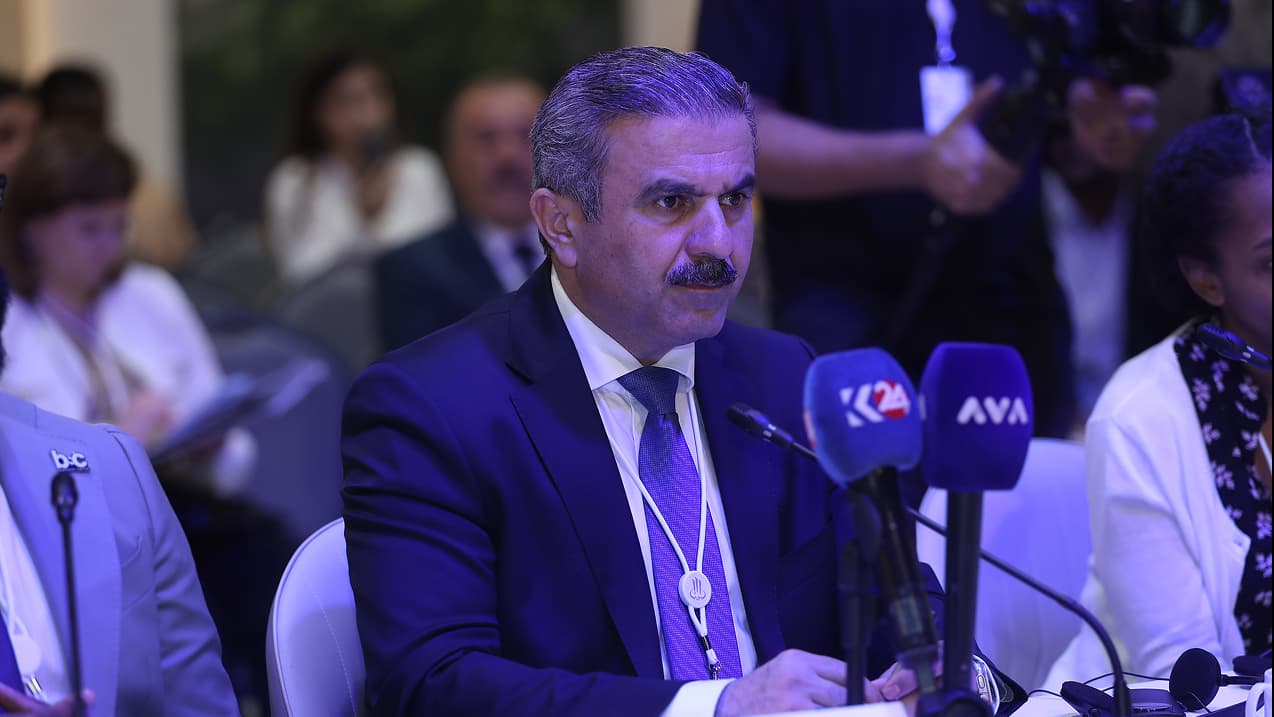Ministerial Roundtable on Investment: A New Globalized World – Building Bridges, Building Wealth
28 July 2025

Executive Summary
As the global economy enters 2025, an environment of moderate growth, disinflation, and policy easing sets the stage for renewed investment momentum. While global growth is projected at 3.0% through 2026, the resilience of emerging markets—forecasted to expand by 3.9%—presents critical opportunities. This policy paper explores how a blended investment approach, public-private coordination, and sustainable practices can position the world economy to navigate uncertainty, bridge inequality, and build long-term prosperity. Drawing on the insights of global ministers and development leaders, the roundtable produced a bold vision for inclusive, secure, and forward-looking investment in a new globalized era.
1. Introduction: Outlook and Opportunity in 2025
2025 marks a pivotal year for global investment. Stabilizing monetary policy, resilient emerging markets, and evolving global supply chains are reshaping capital flows. Governments and institutions must act in lockstep to mobilize sustainable investments while managing risk and bridging development gaps. The AIM 2025 Ministerial Roundtable convened global leaders to address how public policy and capital markets can jointly build wealth, resilience, and inclusion.
2. Roundtable Participants
- Karim Zidane – Minister of Investment, Convergence and Evaluation of Public Policies, Kingdom of Morocco
- Mahmoud Mohieldin – United Nations Special Envoy for Financing the 2030 Sustainable Development Agenda
- Manqoba B. Khumalo – Minister of Commerce, Industry and Trade, Kingdom of Eswatini
- Samir Hamrouni – CEO, World Free Zones Organization
- Sulton Rahimzoda – Minister, State Committee on Investment and State Property Management, Republic of Tajikistan
- Vadim Tretyakov – Minister of Investment and Development, Sverdlovsk Region, Russian Federation
- Wamkele Mene – Secretary-General, African Continental Free Trade Area (AfCFTA)
3. Pillars of Discussion and Policy Insight
3.1 2025 Global Investment Climate & Policy Framework
With a soft landing in sight for the global economy, crafting a transparent and investor-friendly climate is essential. Policymakers must align regulations with innovation, reduce market entry barriers, and de-risk public-private ventures. Incentivizing strategic sectors such as renewable energy, healthcare, and infrastructure remains a priority. Roundtable participants emphasized predictable tax regimes, simplified approval mechanisms, and better investment protection laws.
3.2 Mobilizing Private Investment for SDGs
Achieving the SDGs requires mobilizing trillions in private capital. Leaders explored the viability of blended finance models, performance-linked instruments, and co-investment vehicles. Risk-sharing through public credit guarantees and concessional capital can unlock impact investment. Ministers stressed the need for multilateral banks to co-develop PPP pipelines and provide technical support to developing economies.
3.3 Fostering Sustainable and Inclusive Growth
Sustainable growth must reach all demographics. Delegates highlighted the importance of inclusive labor markets, gender-smart investment strategies, and rural development funds. Chambers and ministries must build programs that engage marginalized communities and local entrepreneurs while fostering responsible business conduct through ESG mandates.
3.4 Building Resilient and Sustainable Infrastructure
Climate-smart infrastructure is a cornerstone of 21st-century development. Investments must focus on transport resilience, clean energy, and digital public goods. Resilience strategies should include climate risk assessments, adaptive engineering standards, and lifecycle planning to avoid stranded assets. The roundtable highlighted the role of sovereign green bonds and institutional investors in financing such infrastructure.
3.5 Strengthening International Cooperation
In a fragmented world, collective investment diplomacy is vital. Participants advocated for data-sharing, mutual investment platforms, and regional harmonization of standards. Cross-border infrastructure projects and trade corridors—such as AfCFTA’s emerging zones—were noted as vehicles for both cooperation and shared prosperity.
4. Policy Recommendations
- Institutionalize blended finance hubs in developing economies to crowd-in private capital.
- Strengthen investment protection mechanisms and commercial courts for cross-border investors.
- Expand public-private platforms for SDG-aligned projects and climate finance.
- Build inclusive investment toolkits that prioritize gender, youth, and informal sector actors.
- Coordinate global infrastructure resilience protocols and promote sovereign ESG-linked instruments.
5. Conclusion and Action Plan
The roundtable concluded with a unified call to action: Investment must evolve—becoming more inclusive, cooperative, and impact-driven. Ministers committed to advancing shared frameworks, strengthening coordination, and publishing the roundtable’s key takeaways for global stakeholders. BlkSculpt Capital will support knowledge transfer, multi-sectoral dialogue, and project acceleration across the regions represented.